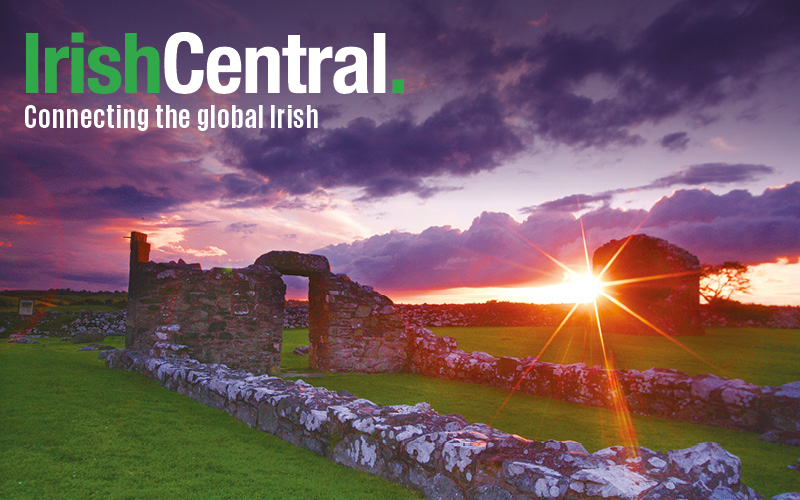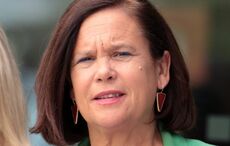Emma DeSouza, a native of Co Derry in Northern Ireland, has been battling with the UK Home Office since 2015
Co Derry native Emma DeSouza continued her legal battle with the UK Home Office on Tuesday where British lawyers argued that anyone born in Northern Ireland is automatically considered British.
Read More: Derry woman says US husband is being held hostage over her “Irish” status
After marrying California native Jake DeSouza in Belfast in 2015, Emma attempted to get Jake permanent residency in Northern Ireland through the UK Home Office. Emma, a Co Derry native who says she has identified as Irish her entire life, applied under her Irish passport.
Her application, however, was denied.
TheJournal explains: “As she [Emma] was classed as a British citizen, but is an Irish passport holder, the UK government defined her as having dual citizenship, and so her husband cannot apply for an EEA [European Economic Area] card and she cannot go through the UK immigration system as an EU national. On this basis, her husband’s application for a residence card was refused.”
DeSouza says: “Our application for a residence card was refused on the grounds that I am ‘automatically a British Citizen’ as I was ‘clearly born in the United Kingdom.’”
The Home Office said that DeSouza would have to renounce her British citizenship in order to apply as an Irish citizen.
Emma argues that the Home Office’s decision to label her as British contradicts the 1998 Good Friday Agreement, which says: “the two governments recognize the birthright of all the people of Northern Ireland to identify themselves and be accepted as Irish or British or both, as they may so choose."
The DeSouzas appealed the Home Office’s decision and initially won, but the Home Office challenged the decision, and a legal battle has since ensued.
The battle continued on Tuesday when an immigration tribunal heard that Emma must “renounce” her British citizenship if she wants to be classified as Irish.
Tony McGleenan, a lawyer for the Home Office, argued on Tuesday that the 1998 Good Friday Agreement does not supersede the 1981 British Nationality Act, which states that a person born in Northern Ireland to at least one British parent is considered British. (Emma's father was considered a British citizen at the time of her birth.)
McGleenan said that the judge in the initial DeSouza case made a “fundamental and egregious error of law” in ruling that the Good Friday Agreement takes precedence over the British Nationality Act.
McGleenan further argued the freedom of choice of citizenship for a person born in Northern Ireland would “nullify” the British Nationality Act, adding: “It would mean that people in Northern Ireland would not have a defined citizenship until they made an elective choice.”
Read More: UK government undermines rights of Northern Ireland-born Irish citizens
Representing DeSouza, Ronan Lavery said the Home Office’s position was contrary to the “spirit and purpose” of the Good Friday Agreement.
The judges presiding over the tribunal announced at its closing that it could take them some weeks to reach a decision.
After the hearing, Emma and Jake shared a public Facebook video indicating that they were happy the tribunal had finally occurred. They also said that if they were successful, the Home Office would "immediately" launch another appeal:
What a day. At long last our case made it before the Upper Tribunal. It was something to sit through the Home Office...
Publiée par Emma DeSouza sur Mardi 10 septembre 2019
Read More: Is the British Home Office creating two tiers of Irish citizenship?




Comments